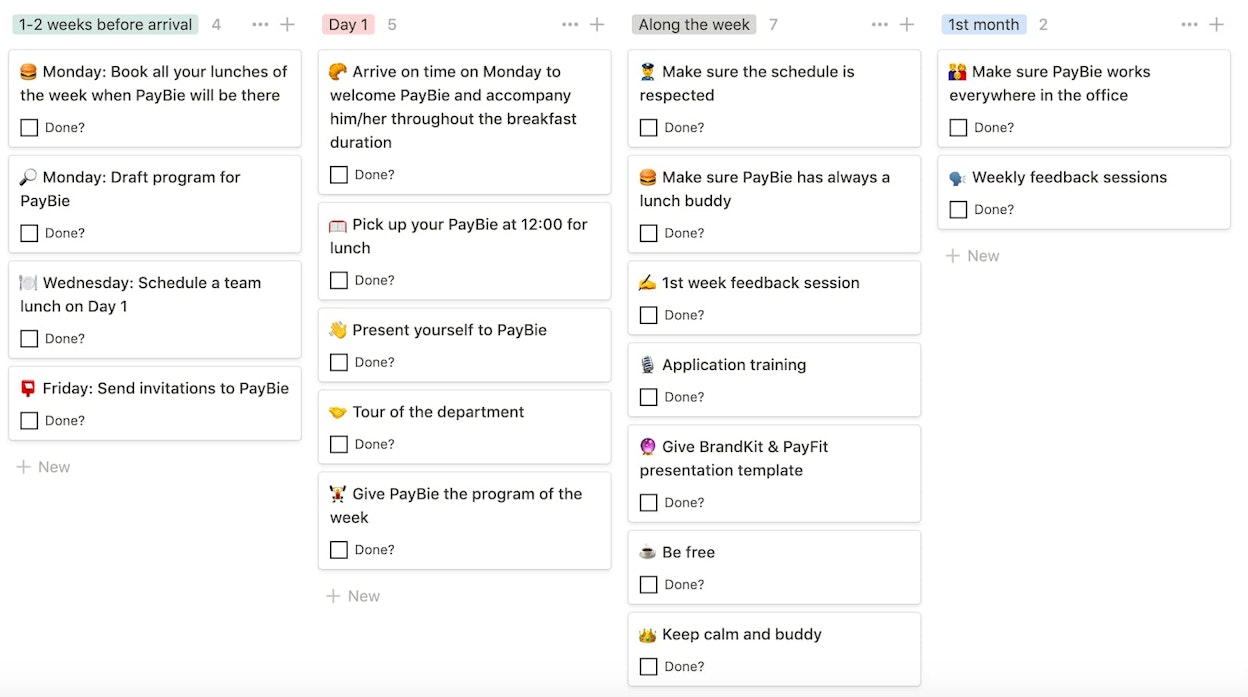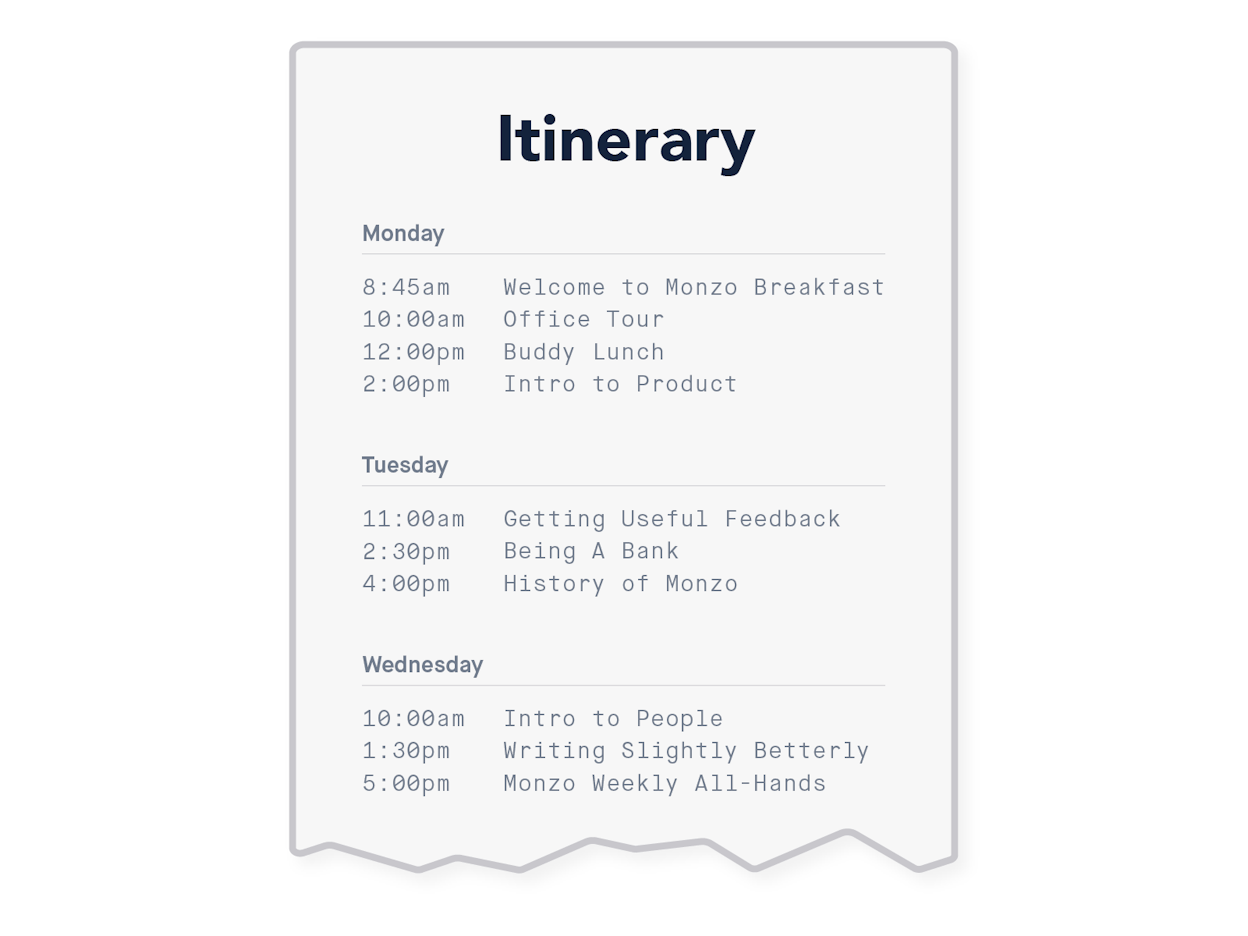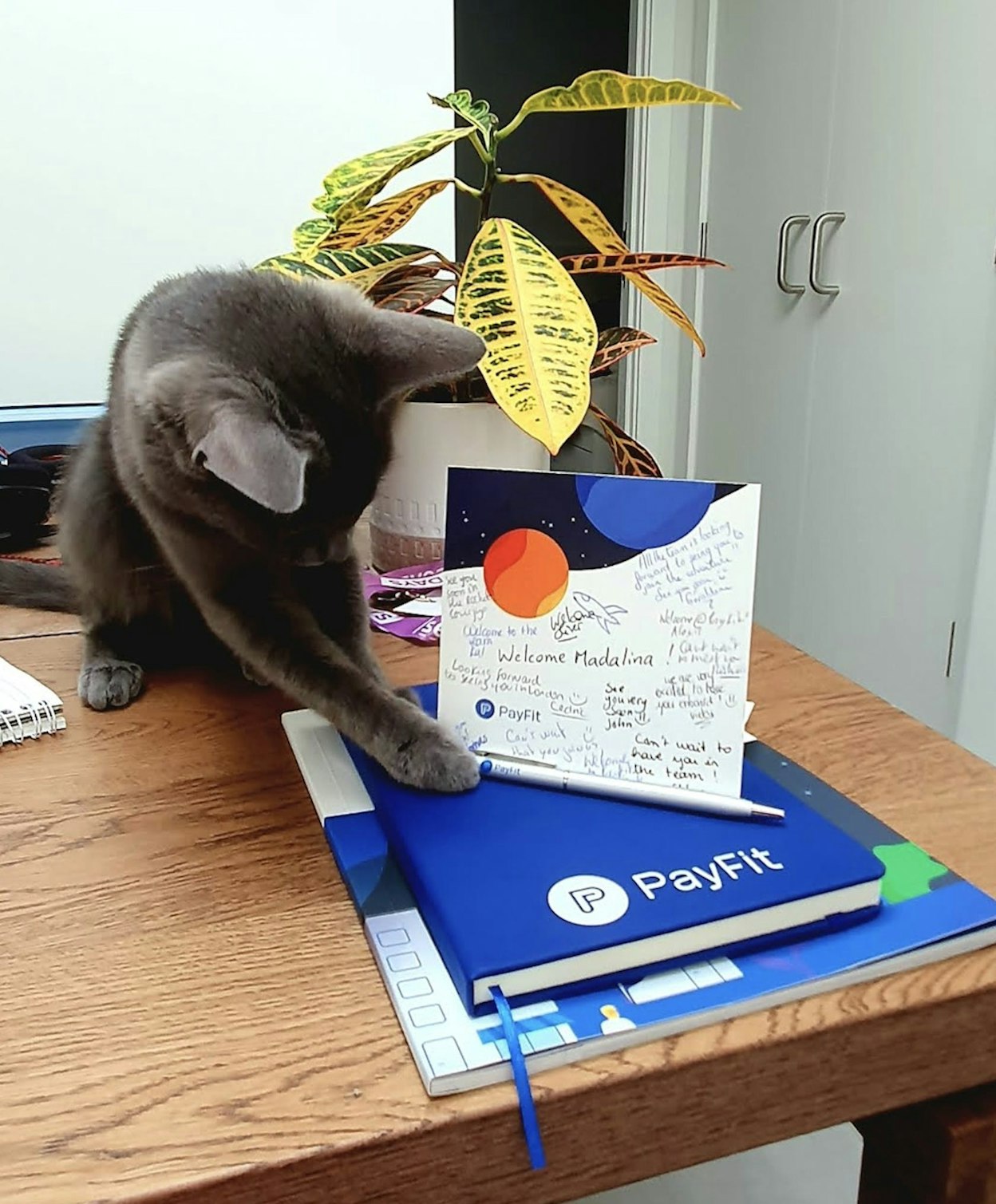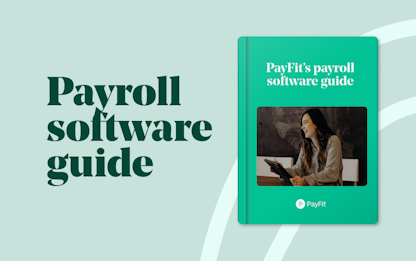- Blog
- |People management
- >Employee wellbeing
- >Onboarding process
Acing the onboarding process like a HR superstar 🤩


For most people, the first day at a new place of work can be a daunting experience. Whether it's the uncertainty of the situation or the fact old insecurities can be brought to the fore, it is nearly always a slightly awkward process.
It is for this reason that onboarding is now seen as an important part of the modern recruitment process. For HR managers and recruitment professionals, the goal is now to ensure that recruits are eased into their new role and made to feel at home from day one.
We’ve all experienced bouts of self-doubt when starting a new job; however, part of your company's onboarding process should be to help reduce or remove these entirely.
New starters will often struggle to justify their new position or worth to a business. Lingering questions or thoughts may consume certain individuals in their first few days in a new role...
Am I good enough?
Will people like me?
Will I like it here?
Did I make a mistake in joining this business?
Will I pass my probation?
For those involved in the recruitment and onboarding process, the objective must be to alleviate these stresses, reassure new employees, and ensure that the settling in process is well managed.
The first day in a new job can be tough and sometimes intimidating. New starters often report sleepless nights or poor sleep in the run-up to their first day. The first day can have a huge emotional impact; however, this doesn’t have to be the case.
A thorough and well-designed onboarding process can help ease the anxiety and self-doubt that new employees may have.
To help you and your business improve the onboarding process and increase the chances of retaining top talent, we've compiled a few tips that you may wish to consider.
The first six months are crucial
A whopping 90% of new employees use their experience during the first six months in their new role to decide whether to commit themselves to the long-term.
Recruitment is an expensive and time-consuming process. So, you don't want to be having to replace key and strategic roles too frequently.
By simply getting the first six months right, you can lay the foundations for your new recruits to have a long and prosperous career in your company.
Forget onboarding for a moment, as it all starts with pre-boarding
It’s crucial to begin the onboarding process before your new recruit’s first day on the job. Research shows that businesses that have a pre-boarding process keep 81% of their first-year hires.
You need to excite, engage, and wow your new employees. Doing this will make them fall in love with your business.
But how do you do it?
Well, it starts with the offer letter.
🎉 Ace the offer letter
Forget the traditional offer letter, get your design team to develop an offer slide or presentation. This could include an intro from the CEO/hiring manager.
Remember to keep the presentation short, sweet, fun, and factual. You may also want to include information such as...
Start date
Salary
Bonus structure
Employee benefits
Additional package information
Company structure
First week/First Day timeline. Make it fun and informative
📮 Send a card
So, you've sent the offer letter or presentation and everything has been accepted.
But what should you do next?
Well, you could send a ‘congratulations on your new job’ card and have team members or the hiring team write a welcome message on the card.
This is a nice touch and creates a feeling of inclusion and warmth before the new starter’s first day. This should also help ease some of that tension we all experience and replace it with excitement and intrigue.
✅ Don’t bore them on the first day
Get the boring paperwork stuff done before the new employee starts. No one wants to spend their first day in a job completing boring admin.
Get those snooze-inducing (but important) forms and manuals sent out ahead of time or use HR software like PayFit to create your own onboarding checklist.
The first day should always be fun and celebratory. At PayFit, we start the day with a welcome breakfast and managers also take their new hire out for lunch.
Did you know?
With PayFit , you can collect personal details and documents prior to a new starter's first day at work. This means that you can save time on boring admin work and get your new recruit set up before they've even arrived in the office.
🎈Get creative with their workspace
Assign a team member to decorate the new starter’s workspace with a welcome banner, balloons, branded merchandise, sweets, treats or even books.
This is obviously optional and dependent on whether your workspace is conducive to this happening. Nevertheless, it's always nice to feel wanted and valued and nothing says that more than a few celebratory items.
👯♀️ Assign an office buddy
Assign the new recruit an office buddy before they join. The task of the office buddy is to help new employees through that challenging first week and to make sure the experience is enjoyable and memorable.
Here is an example of our Buddy Checklist:

☕️ Review their first week
Arrange a catch-up meeting with the new starter to gather feedback about their first week and gauge how they are feeling.
Talk about what they liked, what they didn’t like and how they are settling in. You could do this at lunchtime or over a coffee break in an informal setting.
Monzo, one of the UK's "Challenger Banks", has one of the most impressive onboarding weeks we’ve seen...
Monzo seems to have mastered the art of onboarding, especially for a rapidly growing startup.
They make sure a new employee has received all the vital paperwork before they start. They also set new starters up on Slack and their Monzo emails are ready before they begin so they can dip their toes into conversations or observe from afar.
Here’s an example of the first week’s itinerary for back-end developers at Monzo.

🔥 Hot tip
Create a “New Hire Cheat Sheet” for the recruit. Ask them to fill in some interesting personal information and then share it among their new colleagues. This can help break the ice and encourage conversation from the get-go!
Here are some of the ones we like to use at PayFit...
👉 Favourite foods
👉 Guilty pleasure
👉 Dog/cat name
👉 Favourite movie
👉 Hobbies
👉 Embarrassing moments
👉 Top five conversation starters
👉 Likes
👉 Dislikes
🤓 Train them up
In the first week, 76% of employees believe training is the most important factor. So, you need to make sure you nail your new recruit's training schedule.
Practice makes perfect, so fine-tune your training via feedback from employees and find out which areas of training need more attention.
Did you know?
Only 44% of new employees report a positive experience regarding how they were welcomed to their new organisation.
How we do things at PayFit
At PayFit, we want to create that WOW factor right from the start.
We aim to please new joiners with a surprise welcome package, postcard from the team and tasty welcome breakfast and lunch.
Each new employee gets to choose their equipment before joining, is assigned a buddy and has the first few weeks organised and laid out in the diary on day one.
We strongly believe that this initial impression will last and lay the foundations for a successful relationship.

PayFit is a payroll and HR software that helps companies to automate their payroll and HR processes. We work with many leading companies including Revolut and Flux.
If you would like to find out how we can help support you and your business, then why not book a demo with one of our product specialists?


The 2024 UK National Living Wage - An Employer’s Guide

The Cost Of Recruitment In The UK - What You Might Not Know

UK National Insurance Changes for January 2024

End Of Tax Year 2023/2024 - Eight Key Changes For 24/25

Strategies to Reduce Employee Turnover

